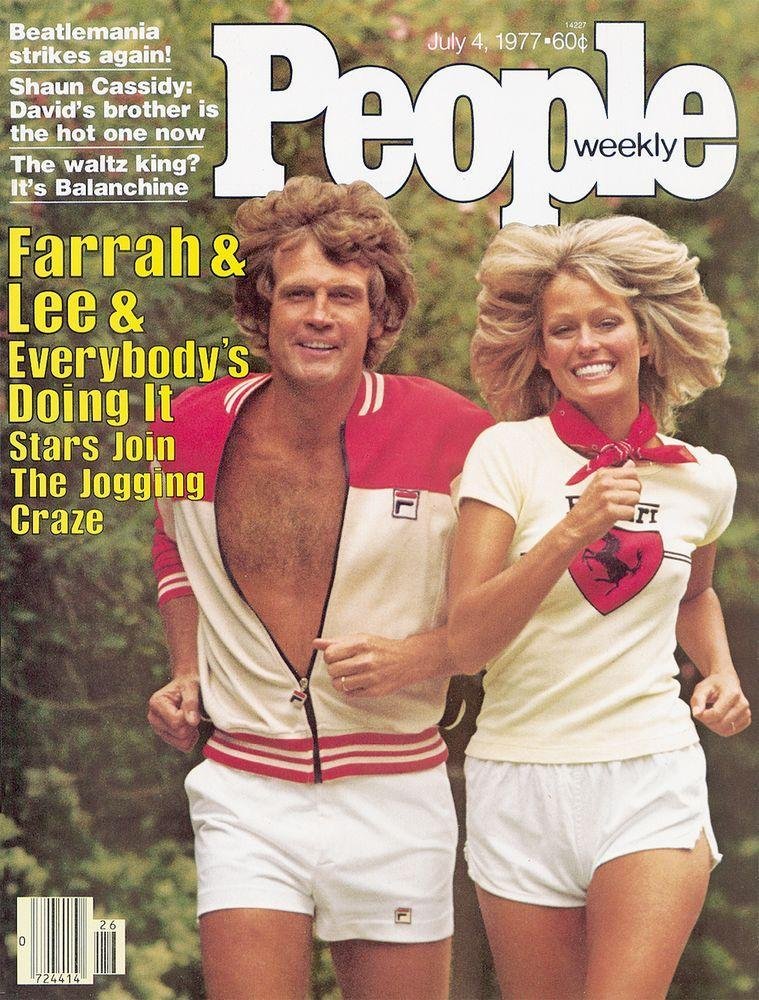Is Mindfulness Practice Any Weirder Than Physical Exercise?
July 1977 cover story about the running boom
Fifty years ago, running and lifting weights were primarily for athletes and soldiers. Imagine the gossip that must have spread when unathletic people started jogging around their neighborhoods.
Early physical fitness adopters were considered odd until family doctors pointed out the need for extra exercise as jobs became more and more sedentary. Who knew our hearts, lungs, and muscles needed to be challenged in order to function optimally?
Still, the popularity of exercise didn’t explode until famous people got on board. It’s funny to think of Jimmy Carter as an OG fitness influencer.
Only weird to the uninitiated
Today, most people get that it’s possible to run, swim, or lift weights regularly without training for the Olympics. But not enough people understand their attentional fitness can be developed by habitually challenging their attention skills.
Mindfulness—especially mindfulness meditation—only seems strange to people who don’t yet know it’s possible to exercise their attention without becoming a monk or converting to a belief system.
To come up with a sustainable mindful habit, it helps to know what capacities you’re working on and how subtle shifts in attention are all that is required to get started.
Strengthen your ability to focus
The demands on our attention are relentless. Whenever you decide what to notice while allowing everything else to play out in the periphery, you strengthen your ability to focus.
When you’re having lunch with a friend and you realize your attention is primarily going to planning what you’re going to say, gently redirect your listening back in their direction.
To get better at this kind of listening, focus on external sounds for a few minutes while letting the internal sounds of your verbal thinking learn to ride more comfortably in the back seat.
Strengthen your self and situational awareness
It’s easy to default to autopilot mode. Whenever you shift the spotlight of your attention to real-time sensory details, you strengthen your ability to discern the rich details we habitually miss.
The opportunities for experiencing this are endless. Pick a few a day. You’re going to eat a few times today. Why not taste a bite of what you’re eating now and then? You’re going to pee a few times. Why not notice the mundane relief of decreased bladder pressure?
Most of these shifts won’t lead to stories to share with your friends, but they can quickly start to make ordinary moments feel more vibrant and alive.
Whether the theme of a particular meditation session is sights, sounds, or body sensations, it will contribute to experiencing moments more fully in general.
Strengthen your composure
It’s instinctual to resist discomfort and enhance pleasure. However, it’s effortless—and universal—to habitually escalate the pain we experience and choke the life out of the comfortable ones. Whenever you attend to a sensation or perception without any agenda to alter it at all, you strengthen your ability to maintain composure.
This is the attentional skill that sounds the most abstract but which feels the most tangible once you experience it a few times. Start by trying to catch yourself experiencing situations that you aren’t micromanaging from the inside. Notice when the temperature of your coffee is just right. Notice how quickly your body adjusts to the touch of your clothes after you get dressed. Notice the subtle satisfaction of stepping into the shade on a sunny day.
To expand your base level range of composure, play around with trying to maintain a similarly neutral response to a broader range of sensations. Notice how a mosquito bite feels when you refrain from scratching it. Notice your emotional reaction to a provocative headline or social media post. For a few seconds, turn the temperature of your shower down until it’s just outside your comfort zone. You don’t have to go full Wim Hof to notice how exhilarating this one can be.
More often than never
None of these examples is intended to imply that there aren’t times when you’ll need to choose your words carefully, engage in an activity automatically without attending to the details, or enjoy a hot shower.
Nobody exercises all the time.
We don’t practice shifting our attention a few times a day to get better at sitting still in quiet rooms. We do it to inhabit our lives more fully, to escalate its inevitable discomforts a little less, and to keep an appreciation of our shared humanity alive.

